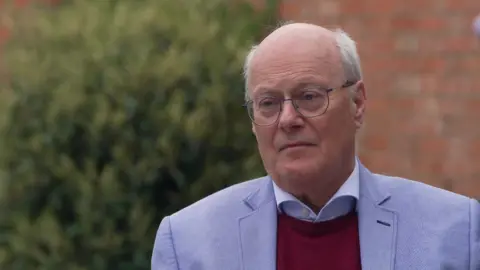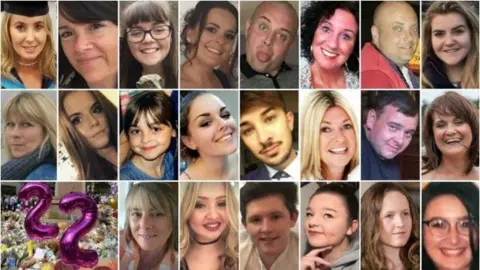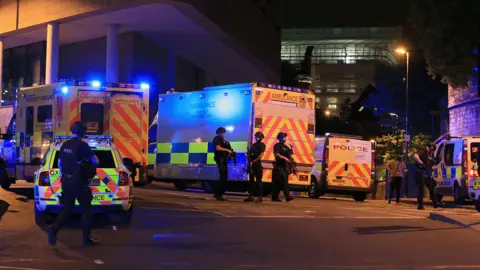Arena inquiry chairman to meet MI5 over progress
 BBC
BBCThe chairman of the inquiry into the Manchester Arena bombing has said he hopes to get "acceptable answers" from MI5 at a meeting to discuss what steps have been taken to prevent further attacks.
Sir John Saunders made a range of recommendations to the security service after hearing evidence about the suicide May 2017 attack.
On the eighth anniversary of the bombing, Sir John said there needed to be public accountability after MI5 admitted missing a significant chance to take action that might have stopped the bombing.
He has now revealed he is due to meet MI5 in June to discuss his recommendations, which were published more than two years ago.
"If I get what I regard as acceptable answers from the security service in June, I'm very happy to go public," said Sir John in his first interview since the inquiry concluded.
Twenty-two people were killed and hundreds more injured when Salman Abedi detonated a homemade explosive in the foyer of the arena as crowds left an Ariana Grande concert.
The public inquiry, which opened in September 2020 and published its findings in 2023, was set up to explore the circumstances leading up to and surrounding the bombing.
 Family handouts
Family handoutsAfter hearing from 291 witnesses and considering 172,000 pages of evidence, Sir John published three reports into his findings.
The final report outlined how the attack might have been prevented if MI5 had acted on key intelligence received in the months beforehand.
MI5 chief Ken McCallum previously said he was "profoundly sorry".
In July 2023, Sir John raised concerns that progress on some of the recommendations including the provision of emergency care and CCTV operation had been slow.
He told BBC North West Tonight the "good news" was that "by and large" steps had been taken.
 PA Media
PA MediaSir John also said the evidence during the inquiry had had a profound effect on him.
"Having been a criminal judge and a criminal lawyer, I've listened to a lot of horrific evidence but the evidence in the Manchester Arena inquiry was incredibly moving," he said.
"The personal statements by the bereaved were incredibly moving but there were other very moving parts as well.
"Hard-bitten policemen who had found themselves [at the scene], not knowing what to do to try and stem the bleeding, believing the paramedics were coming any minute now and them not coming.
"They were still in tears giving evidence about it a number of years later."
He said it was important for the bereaved families that the recommendations were "followed up and are carried out".
"It would just be awful for them as well as for the rest of us to lose those lessons."
Listen to the best of BBC Radio Manchester on Sounds and follow BBC Manchester on Facebook, X, and Instagram. You can also send story ideas via Whatsapp to 0808 100 2230.
